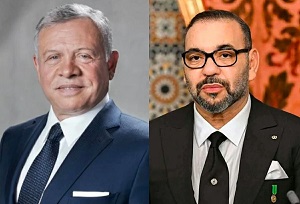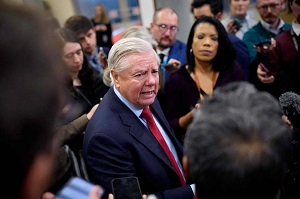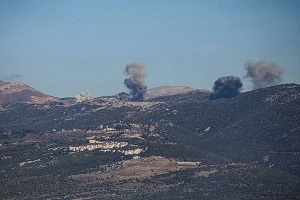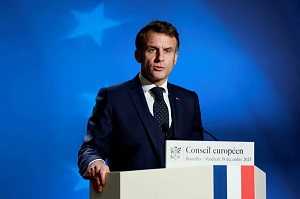When Will the Arabs Rediscover Their Abilities? - By Mohammed Ali Al-Saqqaf, Asharq Al-Awsat
The Arabs almost unanimously agree that most of the regional challenges facing them stem mainly from neighboring countries’ ambitions that seek to expand into the Arab world and revive their former expansionist glory.
One reason to pose such questions at this time is that in the Arab world, as well as Europe and indeed the whole world, there is an effort to examine the direction that will be taken by the next American administration once President-elect Biden is sworn into office on January 20, 2021.
Regarding the Arab world, particularly the Palestinians, Biden’s policy concerning ties with Israel and the Palestinians is not expected to fundamentally differ from that of Trump. The question: will he perpetuate the policy of expanding the circle of Arab countries that normalize ties with Israel, or will he work on achieving this goal as part of a comprehensive solution to the Palestinian-Israeli crisis and the Middle East crisis in general?
No doubt, issues of security and military cooperation are essential to Arab states. There is also a question of whether they will continue to adopt the same policies or search for new strategies.
Here, I would like to refer to the fact that some European Union leaders, upset by US President Donald Trump’s criticism of their meager contributions to NATO’s budget and his rhetoric about America no longer being willing to bear the burden of defending Europe, are considering establishing a “European NATO” as an alternative to the US-dominated NATO.
The European Union countries believe that the focus of the Biden administration’s international policy will be on confronting the Chinese threat because the bipolar struggle between the US and the Soviet Union during the Cold War period ended with China replacing the Soviet Union as the United States’ rival. This implies a decline in the importance of the US' relationship with the EU and the Middle East. According to some analysts, this leaves Europe feeling like it alone must bear the burdens of unrest and crises in the Middle East, the Mediterranean regions and the Caucasus.
In light of this, what is the Arab world to do to confront these challenges?
Today’s world differs from that of the 1960s, 70s and even the 80s, when the Arab world played divergently significant international roles, from the Bandung Conference and the Non-Aligned Movement, to calling for a dialogue between North and South, industrialized and developing countries. This era has been replaced by one in which relationships between countries are based on the balance of power, not just the United Nations Charter’s state rights and principles. This means Arab countries must focus on foreign policy and defense, the pillars of Arab states’ sovereignty and national security. The two are complementary, though they sometimes contradict with one another.
A historical precedent should be recalled: the events of the October 1973 war and the Arab states’ oil embargo, the topic for the author of these lines’ doctoral thesis on the Organization of Petroleum Exporting Countries (OPEC) at the Sorbonne University. At the time, oil-rich Arab states adopted the unique strategy of imposing a gradual oil embargo based on countries’ positions regarding the war and support for Israel.
Those decisions, which created a political and economic earthquake that hit global oil markets and oil-consuming countries, strengthened the Arabs’ war-time position. At the same time, it also allowed oil-producing countries to seize the historic moment, putting their hand on their oil wealth by nationalizing or taking partial ownership of this wealth and determining the production volume, which had up until then been decided on by major oil companies. This led to a rise in oil prices and an increase in oil-producing countries’ revenues.
The Arab nation and its countries’ interests were thus furthered.
Another aspect of this Arab collective action’s advantageousness is that the European states that had been dependent on Arab oil to divergent degrees took favorable political initiatives, adopting advanced stances on the Palestinian cause and putting forward an initiative for Arab European dialogue. One side of their cooperation was Arab countries supplying the European countries with oil in exchange for technological tools and joint projects in other fields.
Out of Arab-European dialogue, an alternative project proposed by the French President who passed away a few days ago, Valerie Giscard d’Estaing, emerged. However, his initiative for Gulf-European dialogue did not succeed.
In the aftermath of the 1970s oil embargo’s success, some western circles sought to sing the tune of the era of the Arab oil’s importance coming to an end. Despite these claims, the second Gulf crisis demonstrated that interest in Arab oil had not become a thing of the past, despite the emergence of non-OPEC member oil and gas producing countries.
It is true that oil’s significance for international relations is different than it had been over the past decades because of technological advancements that have made it possible to extract oil from shale and the dangers of global demand for oil being undercut by the evolution of the electric-car industry and more eco-friendly sources of energy. In the long run, this threatens Arab national security, and it requires national initiatives for the diversification of sources of revenue similar to Saudi Arabia’s Vision 2030.
While the idea of establishing a pan-Arab military force may seem far-fetched at the moment, Arab countries could at least coordinate with each other, adopt a common foreign policy and agree on common positions regarding current and future challenges amongst themselves. As we mentioned, today's world is shaped by the balance of power, which determines how parties deal with one another. The Arabs have strategic waterways, control vast territories in the heart of the world, and have many capacities and resources and a rich history and civilization. This qualifies them to occupy a place among the world’s developed nations.
Latest News
-
 Crown Prince chairs meeting to review programme on combating littering
Crown Prince chairs meeting to review programme on combating littering
-
 King congratulates Morocco monarch on football team’s 2025 Arab Cup win
King congratulates Morocco monarch on football team’s 2025 Arab Cup win
-
 US Senator Accuses Hamas and Hezbollah of Rearming
US Senator Accuses Hamas and Hezbollah of Rearming
-
 One Dead in Israeli Strikes on South Lebanon
One Dead in Israeli Strikes on South Lebanon
-
 Putin Ready to Talk to France’s Macron on Ukraine, Says Spokesman
Putin Ready to Talk to France’s Macron on Ukraine, Says Spokesman